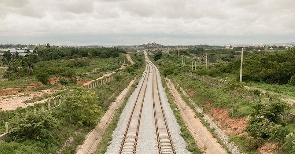In July 2018, Muhammadu Buhari, the president of Nigeria at the time, boarded a gleaming new train linking the capital city, Abuja, with its airport. At the ribbon-cutting ceremony, Buhari hailed the system as “evidence that we are a government that delivers on its promises.”
Five years on, that promise looks empty. Train cars are locked away at a depot. Cavernous stations fully equipped with escalators, ticket offices, cameras and scanners stand empty, overseen by bored security guards.
The faux leather couches in the VIP area are covered in bird and bat droppings. “It’s an abandoned project,” says Rowland Ataguba, an adviser to the government on rail strategy. “Quite clearly there was no plan on how to run the operations before they built it.”
The $823 million Abuja Light Rail—the first of its kind in West Africa—was closed in March 2020, ostensibly to slow the spread of the coronavirus. Since then, it’s remained shuttered, and there’s been scant progress toward a resumption of service on the 27-kilometer (17-mile) line.
Meanwhile, Nigeria is spending $50 million a year paying down the project’s $500 million in loans from the Export-Import Bank of China. “The current situation is a mystery for the next minister to unravel,” says Nasir El-Rufai, who as minister in charge of the capital area signed the contract to build the railway 16 years ago.
The line was intended to be the first of a half-dozen in a 290-kilometer network that would connect the city to the satellite towns where many workers live. Instead, it’s become a lesson in how not to create a mass transit system, says Mohamed Lawal Shaibu of Envicons Teams Ltd., an urban planning consultant in Abuja.
The problem, Shaibu says, is that the train serves areas with little demand. “It has been very terribly executed,” he says. “The line basically avoided where people are, where people live, where people go.” — William Clowes, Bloomberg Businessweek.
Ghana’s leading digital news platform, GhanaWeb, in conjunction with the Korle-Bu Teaching Hospital, is embarking on an aggressive campaign which is geared towards ensuring that parliament passes comprehensive legislation to guide organ harvesting, organ donation, and organ transplantation in the country.
Watch the latest edition of BizTech and BizHeadlines below:
Click here to start the nomination process for the 2023 GhanaWeb Excellence Awards
Business News of Wednesday, 30 August 2023
Source: Bloomberg













